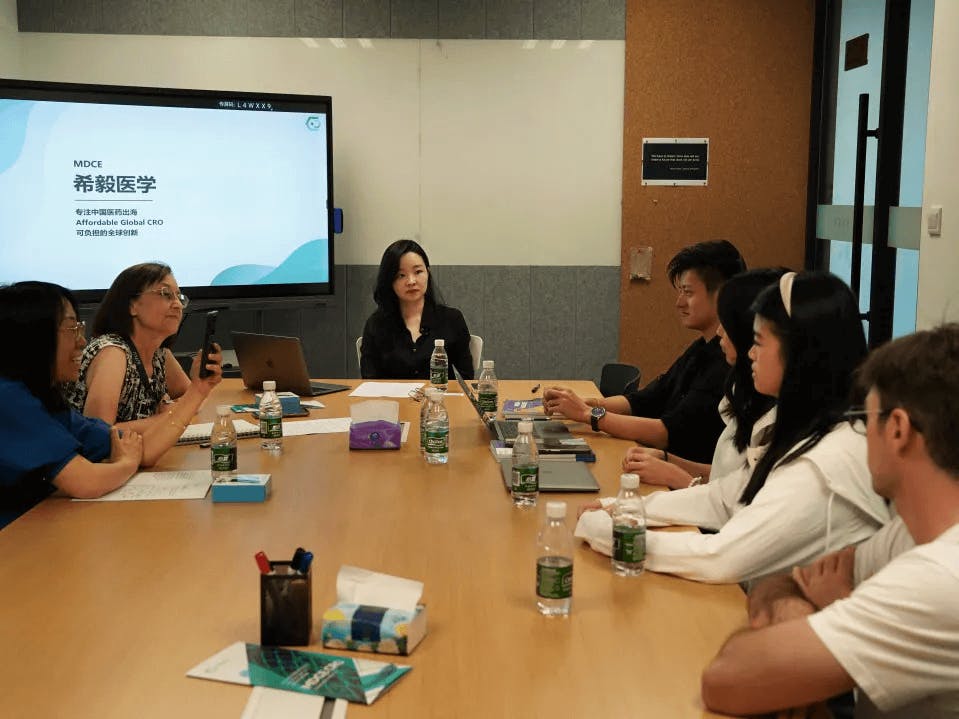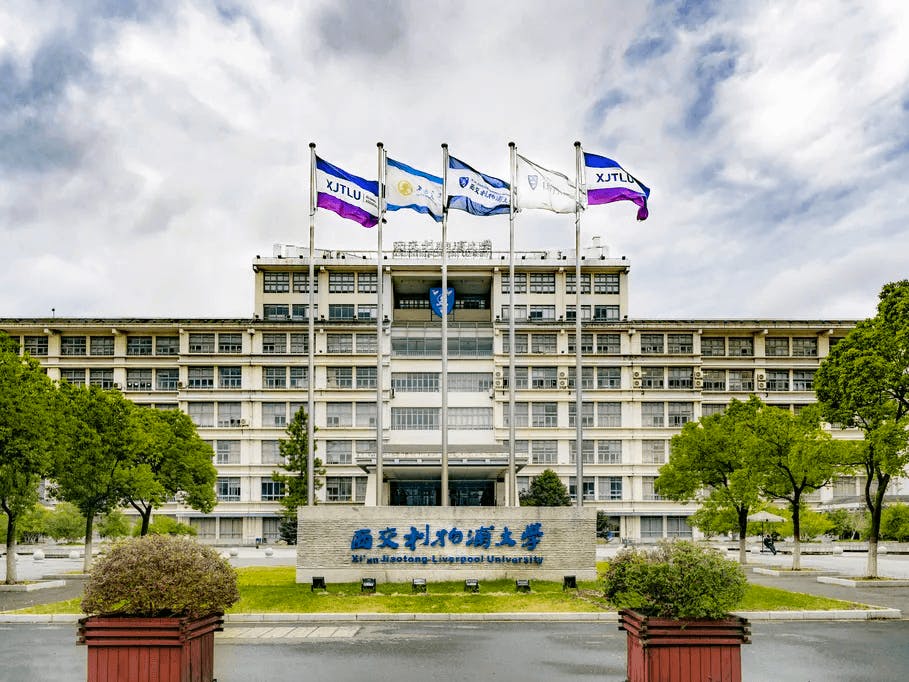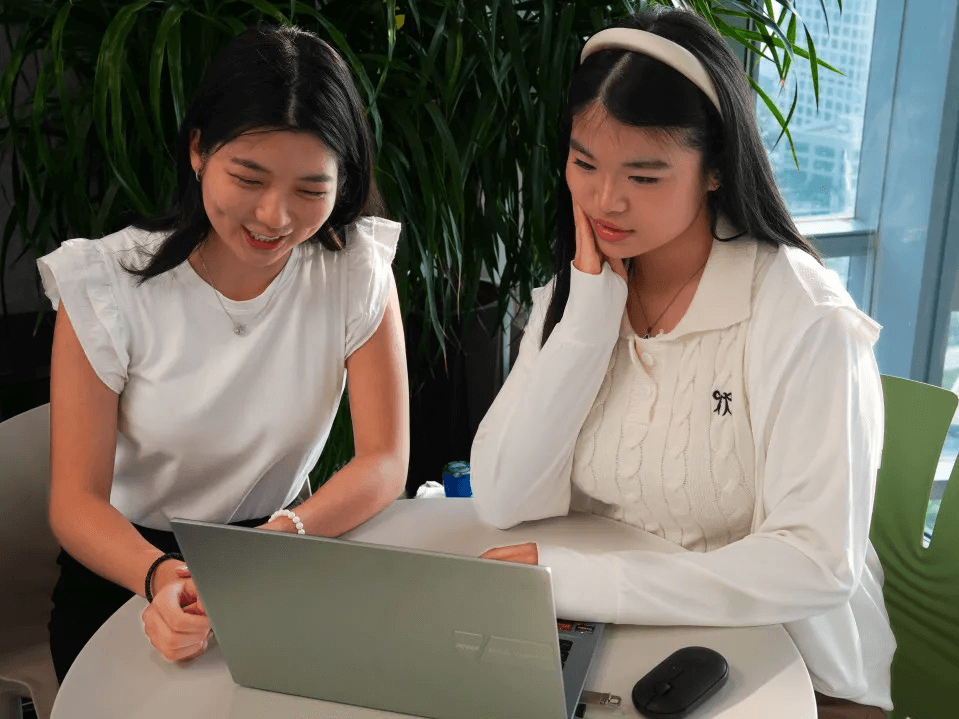The Suzhou headquarters includes employees from China, Russia, and India, and their clinical research specialists are from countries spread across the globe.
The University’s reputation as an international university is one reason MDCE contacted it about the internships.
“XJTLU is famous for its academic resources, providing students with a high-quality education that offers a global perspective and good research opportunities,” Xu says.
Batbayar, who graduated during her internship with a BA in International Business with a Language, worked at MDCE in human resources. Hormen, now a Year Three BA Marketing student and Ceci interned in marketing.

Preparation paves the way
“We required their managers to assign tasks aligned with their academic backgrounds and their hard and soft skills. When their team leaders wanted to assign a new task, we asked them to illustrate the task with an example, showing the interns the whole process and the results,” Xu says.
The preparation paid off, and both the MDCE representatives and the students listed positive outcomes of the internships.
“The international interns brought different perspectives and ideas to the team,” Xu says.
“For example, Ulzii speaks not only Chinese and English but also Russian, so she helped a lot in the overseas talent acquisition and helped us better understand the medical education system of Russia, which is very different from what it is in China.

Growing through challenges
“I learnt a lot of technical hands-on skills that I can apply in practice directly, outside the bounds of the classroom,” she says.
Batbayar says she also grew. One experience sticks out in her mind. MDCE was having difficulty finding qualified personnel to support an overseas clinical trial. She recruited a candidate who met both MDCE’s and their client’s needs within a tight timeline.
“It was my first big achievement in my internship period, so it was very memorable,” she says.

Job offer
Xu says MDCE will continue recruiting international interns. Besides relevant academic backgrounds, the company will look for individuals who have independent problem-solving skills, a proactive attitude, and an eagerness to learn. The company also highly values adaptability and strong communication skills, she says.
Would she recommend other Chinese companies hire international interns?
“Of course I would recommend that,” she says, “as long as the company runs an international business and can provide an open and diverse company culture or environment for the students.”

Tips for international students who want to intern in China
1.Be aware of the residence permit annotation application process. “If an international student wants to do an internship, they need to apply for an annotation on their residence permit that allows for internships. According to Chinese regulations, they must apply for a residence permit with a remark stating the holder can participate in internships. You need to work with the XJTLU Global office and your company to prepare necessary documents. The whole process might take more than a month.”
2.Proactively seek opportunities. “International students need to enhance their ability to find companies that are willing to accept international interns. Most international students are unaware that companies can recruit through websites or apps like ‘BOSS Zhipin’. The cultural barriers in the job market are significant, and students  need to overcome them.
need to overcome them.
“We will organise activities this semester to help students overcome these barriers, such as job fairs, one-on-one sessions, presentations, workshops, and more. For example, we are holding a job fair on 6 November.”
3.Improve your Mandarin skills. “A common requirement is fluency in both English and Chinese. International students are expected to have at least passed level 4 of the HSK Chinese proficiency exam. Companies in China generally prefer candidates with a certain level of Chinese language proficiency or at least having basic Chinese workplace communication skills.”

4.Know that your experience may be your compensation. “Chinese companies can’t give students salaries because of residence permit rules. Some companies may help reimburse you for your daily transportation and some meals.”
Hear from an intern
Watch video clips from the interview for this story features XJTLU alumna Ulzii-Uchral Batbayar talking about a success she had during her internship.
Xi’an Jiaotong-Liverpool University
 Xi’an Jiaotong – Liverpool University (XJTLU) is an emerging international educational institution established through a collaborative effort between China’s Xi’an Jiaotong University and the University of Liverpool in the UK. As a unique Sino-Foreign cooperative university, it embodies the best qualities of its esteemed parent institutions and holds the distinction of being the sole university of its kind sanctioned by China’s Ministry of Education.
Xi’an Jiaotong – Liverpool University (XJTLU) is an emerging international educational institution established through a collaborative effort between China’s Xi’an Jiaotong University and the University of Liverpool in the UK. As a unique Sino-Foreign cooperative university, it embodies the best qualities of its esteemed parent institutions and holds the distinction of being the sole university of its kind sanctioned by China’s Ministry of Education.
XJTLU provides undergraduate degree programs in the domains of science, engineering, and management, conferring degrees both from its own Chinese accreditation and the University of Liverpool.
Learn more and apply for XJTLU’s programs through the China Admissions platform.

Bachelor’s in Internet of Things Engineering with Contemporary Entrepreneurialism
Xi’an Jiaotong-Liverpool University (XJTLU)

Bachelor’s in Internet of Things Engineering with Contemporary Entrepreneurialism
Xi’an Jiaotong-Liverpool University (XJTLU)
- International interns bring Suzhou company new perspectives - October 24, 2024
- Finding your feet and learning to grow at XJTLU Entrepreneur College (XEC) - October 24, 2024
- Welcoming the New International Student to XJTLU - September 12, 2024
